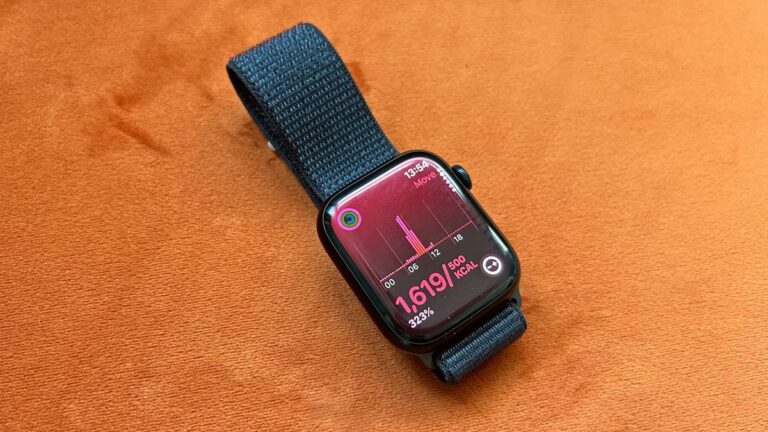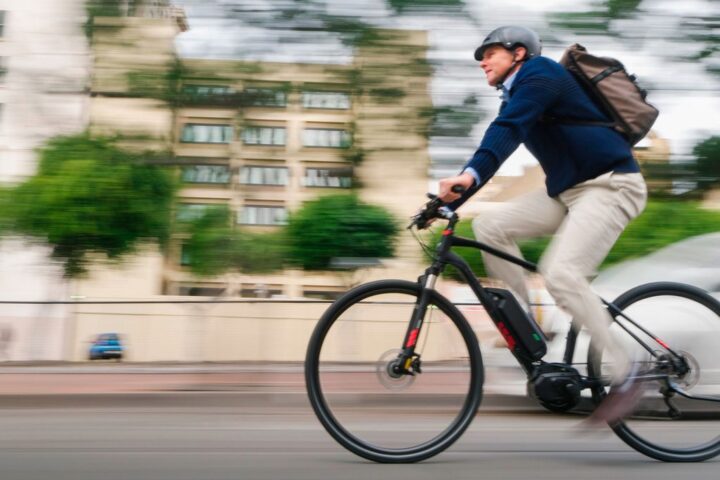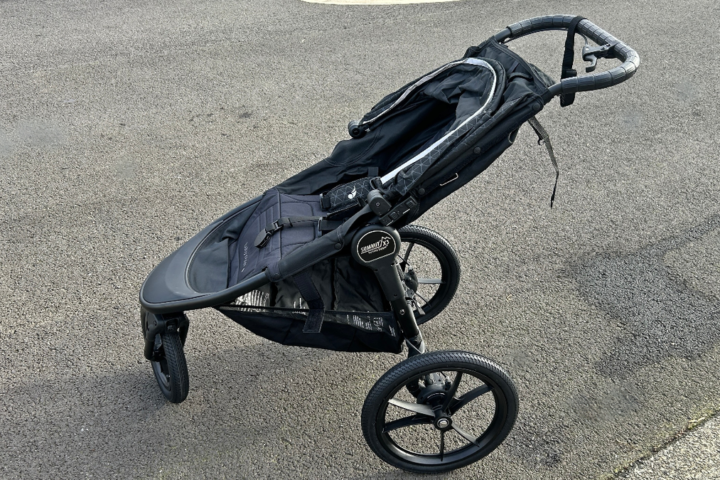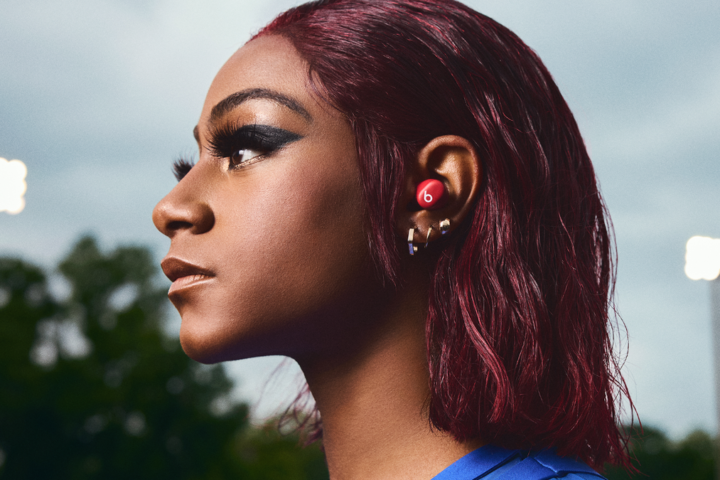The Apple Watch has consistently been one of the best fitness smartwatches available and the only reason the Apple Watch Series 8 got knocked off top spot last year was because of the launch of the Apple Watch Ultra, which has longer battery life and extra features such as more accurate multi-band GPS and the Action button.
Apple hasn’t made huge updates to either the Series or Ultra watches in 2023, but both new models are upgrades on their predecessors. The Apple Watch Series 9 has a new processor and a brighter screen than the Series 8, adds Double Tap (a gesture control), and is more environmentally friendly. It’s an excellent alternative to the Apple Watch Ultra 2 for those who want a sporty smartwatch and don’t want to pay $799/£799.
Apple Watch Series 9: Price And Availability
The Apple Watch Series 9 launched in September 2023 and costs from $399 in the US and £399 in the UK for the 41mm watch, while the 45mm costs from $429/£429. The price has dropped in the UK for both sizes. This is for the standard version of the watch, and if you want a cellular (connects to a mobile network) model it costs an extra $100/£100.
How I Tested This Watch
I’ve used the Apple Watch Series 9 for several weeks, tracking my workouts, daily activity and sleep. During that time, I tested it against the Apple Watch Ultra 2, along with other watches and accessories during runs to check the GPS and HR accuracy. I have tested every generation of the Apple Watch to date, along with many fitness smartwatches from other brands.
Design And Hardware
The biggest updates to the Apple Watch Series 9 are a brighter screen and a more powerful processor. The screen’s maximum brightness is now 2,000 nits, up from 1,000, and it goes as dim as 1 nit in sleep mode, which helps to preserve battery life.
It’s a fantastic display, and while it’s not as bright as the 3,000 nits you get from the Apple Watch Ultra 2’s screen, I’ve no complaints about it. It’s easy to read in all conditions and responds quickly to get brighter when you turn your wrist.
Apple’s new S9 SiP chip makes the watch faster and enables the inclusion of several new features, the most noteworthy of which is Double Tap. This is a new form of gesture control whereby you turn the watch to face you, then tap your index finger and thumb together twice. It can do things like open your Smart Stack of apps, play/pause music, answer/end calls and turn off alarms.
During my testing, the occasions when Double Tap came in handy were few, but it is useful when one or both hands are full pushing a pram or holding a baby, or when cooking, since bringing up the Smart Stack allows you to do things like check the weather or a timer.
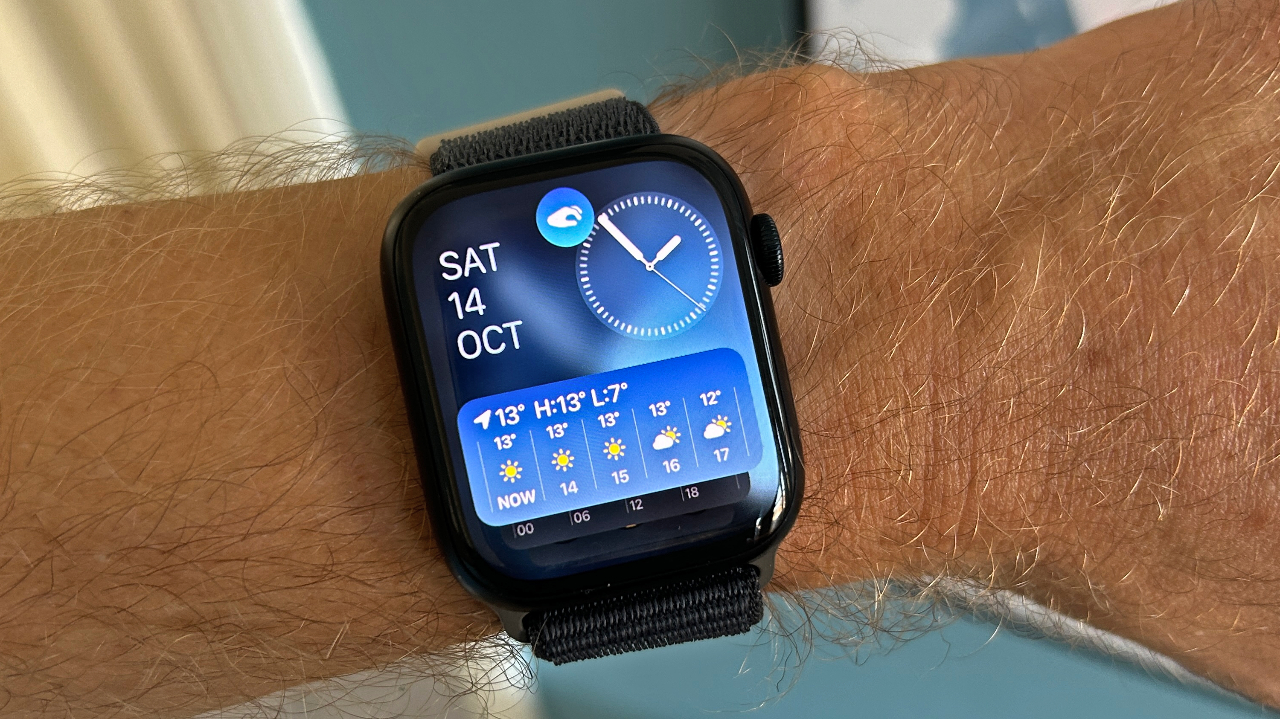
The Apple Watch Series 9 looks almost identical to the Series 8, with the edge-to-edge display and digital crown and button on one side. However, Apple is now using more recycled materials and any aluminum Series 9 paired with a Sport Loop is carbon neutral.
Another update is the Ultra Wideband chip, which makes for a more precise experience when using the Find My iPhone feature, and allows for more interaction between the watch and an Apple HomePod if you have one.
Other key hardware remains the same. The watch has an optical heart rate sensor and can take ECG and blood oxygen saturation measurement. It has a barometric altimeter and is water-resistant to 50m. Unlike the Apple Watch Ultra 2 the Series 9 doesn’t offer multi-band GPS tracking but will track outdoor activities using GPS, GLONASS, Galileo, QZSS, and BeiDou satellite systems simultaneously.
Sports Tracking
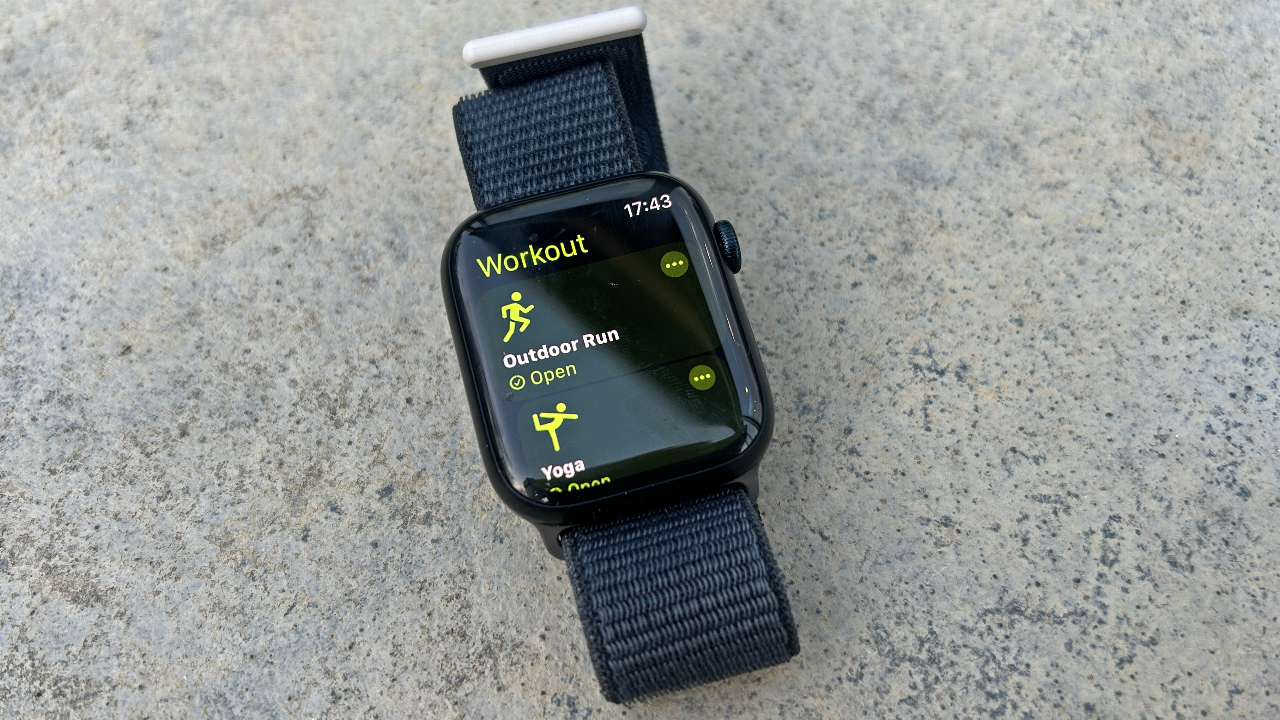
The Apple Watch has improved as a sports tracker since the original iteration, and that has continued in 2023 thanks to the watchOS 10 software update. This brings in new features for cyclists, including the ability to link up with power sensors.
The native Workout app is now detailed and useful enough to satisfy most users, with all the stats you really need, structured workouts you can set up and follow on the watch, and data field customization so you can show the info you want during training sessions. You can now import workouts and training plans from third-party apps like TrainingPeaks into the Workout app.
The native app is just part of the appeal of an Apple Watch because there are many excellent sports tracking apps in the App Store. Two of my stand-outs are WorkOutDoors, which effectively turns the Series 9 into a full sports watch (minus the battery life) and has maps you can see during workouts, and Footpath, a great navigation app with workout tracking.
GPS And HR Accuracy
The Apple Watch Series 9 doesn’t offer multi-band GPS like the Apple Watch Ultra 2, and this noticeably affects the accuracy of its tracking. After using the devices side by side on runs and looking at the GPS trace, it was evident that the Series 9 cut more corners, and wobbled more, leading to different distance and pace stats. However, the differences aren’t drastic, and the fact Apple also uses the pedometer on the watch to calibrate pace and distance in tricky GPS areas—like under tree cover and amid tall buildings—means the Series 9 is an accurate device.
These pedometer-calibrated readings won’t work for everyone, though: I’ve found they often come up short compared with the GPS tracking from an accurate multi-band watch like the Garmin Epix Pro—perhaps because I change shoes and terrain a lot during my weekly training.
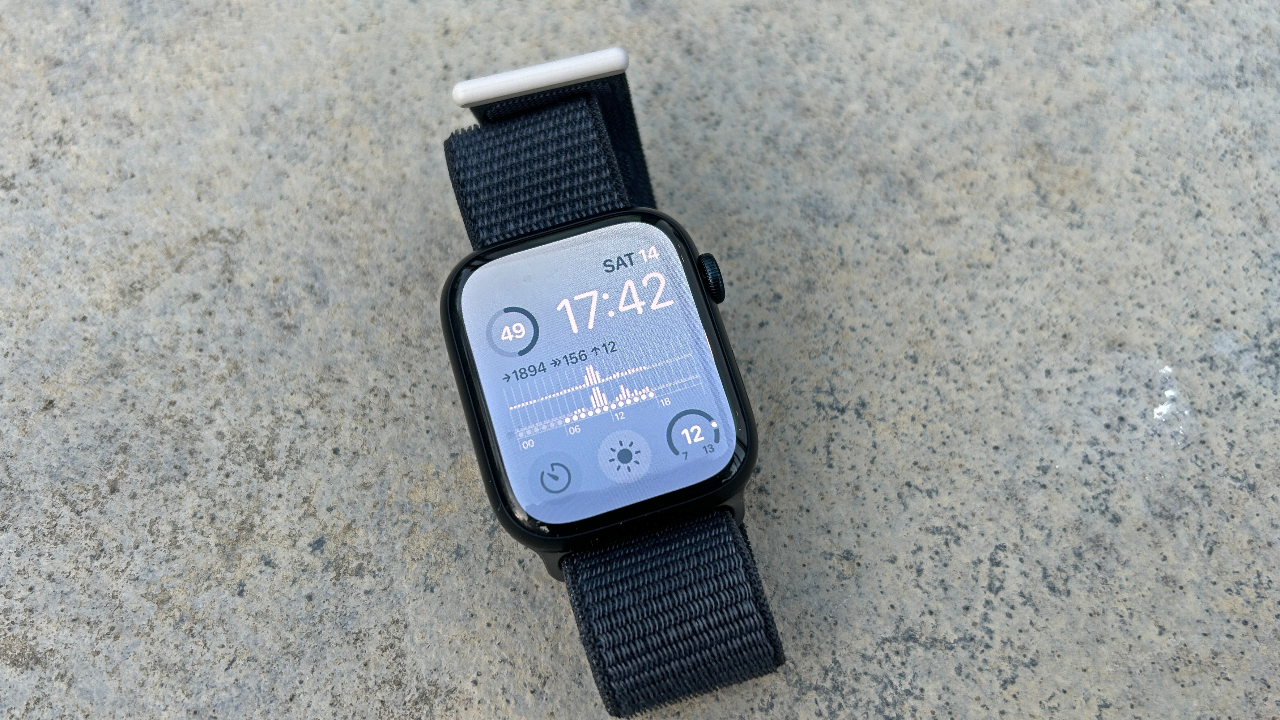
As an obsessive runner who uses a watch to pace one or two workouts each week, I find the multi-band GPS on the Apple Watch Ultra 2 and other devices to be a noticeable and useful improvement, though the Apple Watch Series 9 is more than accurate enough for most users.
The heart rate readings were mostly accurate during my testing. For me, the Apple Watch Series range has been one of the better watches for heart rate accuracy for several years, and while the readings drop out occasionally they are almost never flat wrong for long sections of workouts.
You can pair an external sensor, like a chest strap, via Bluetooth. I tend to do this for peace of mind because chest straps are more accurate than optical monitors. Yet, for the most part, the Series 9 is accurate enough on HR to rely on when judging your effort during workouts.
Health, Activity And Sleep Tracking
The Apple Watch Series 9 is an excellent health and activity tracker, with Apple’s engaging rings system a continuous motivation to keep active each and every day. The watch takes ECG and blood oxygen saturation readings on demand, and measures your skin temperature at night and compares it with your baseline. Wild deviations from the norm can indicate you’re getting ill, as I found out when I got COVID while wearing an Apple Watch.
Since the Series 9 lasts only a day on a charge, sleep tracking is tricky. It charges quickly, though, so I usually found time each day to charge it so I could wear it at night. However, on busy days when I was out of the house late into the evening, I had to charge it overnight.
If you do wear it to sleep, the Series 9 is a pretty accurate tracker, just not the most detailed. With a baby, I’m awake a lot in the night at the moment and the Apple Watch Series 9 was more reliable than a couple of Garmin watches and the Fitbit Charge 6 in spotting these awake periods. The Charge 6, and Fitbits in general, are still accurate and give you more detail about your sleep, as do Polar and Huawei devices.
Battery Life
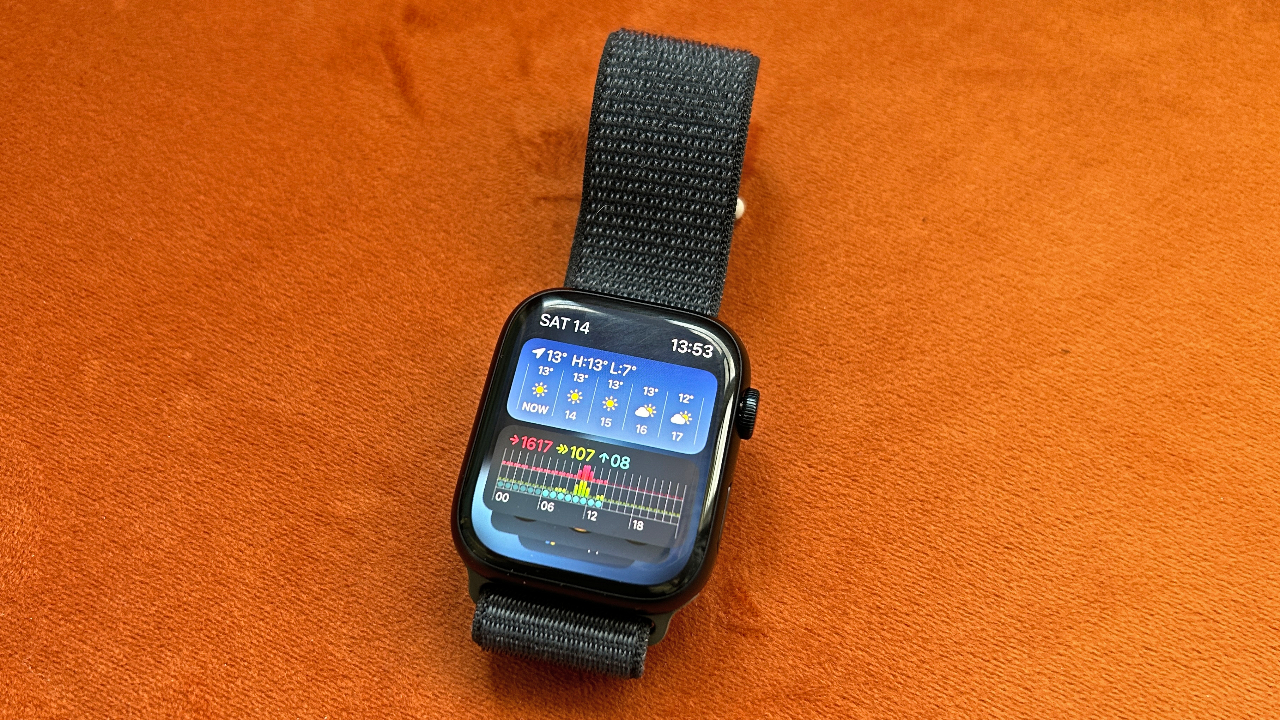
The Apple Watch Series 9, like the eight generations before it, lasts a day on a charge. It’s reliable in getting through the day, even if you do a long workout using GPS and listen to music through the watch at times, but it’s not as long-lived as most of the best sports watches or the Apple Watch Ultra 2.
Each year Apple opts to make performance improvements to the watch while maintaining the listed 18 hours battery life—rather than increasing the battery life—and that’s a fair decision. People buy the Apple Watch for its high level of performance, and if you need longer battery life then a sports watch is going to be a better bet. The likes of the Garmin Forerunner 965 and Epix Pro have AMOLED screens and last more than a week on a charge.
Smart Features And Navigation
The Apple Watch Series 9 is as smart as watches get, with the best app store and the easiest-to-use smart features, like NFC payments and music. While some sports watches now offer music and NFC payments, none match Apple’s App Store, and if you have the cellular version of the watch you can leave your phone behind during workouts and stay connected.
For the most part, the Series 9 offers the same array of smarts as the Series 8, but Siri has improved with the new watch. Many queries are now answered “on device”, so the watch doesn’t have to relay your query to your phone, which speeds up responses. You can now ask Siri health-related questions, such as how you slept last night.
Is The Apple Watch Series 9 Worth It?
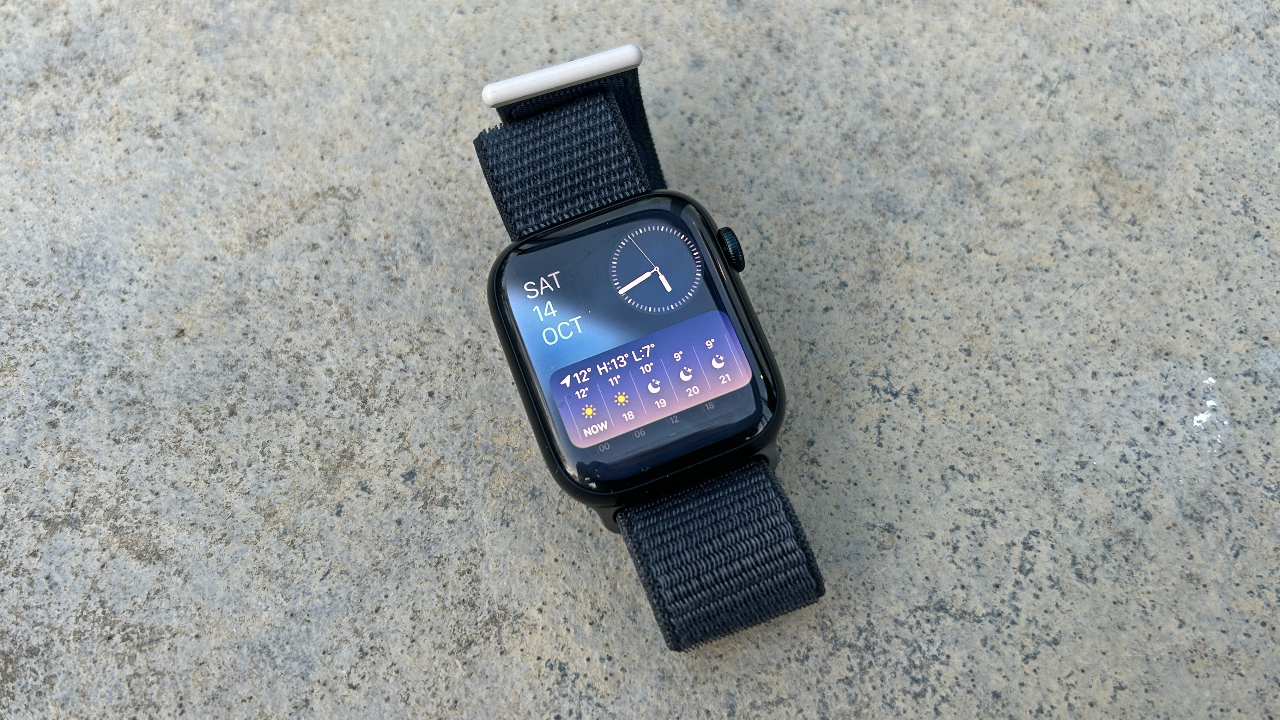
The Apple Watch Series 9 is a brilliant smartwatch, though if you have a recent model of the Apple Watch there’s no one particularly compelling reason to upgrade, just a series of small improvements that may tempt you to do so.
If you’re an iPhone user and want a sporty smartwatch it’s the obvious choice, though if you’re especially sporty and value things like a lap button, longer battery and more accurate GPS, the Apple Watch Ultra 2 is a better pick.
Garmin’s range of smart sports watches contain good alternatives to the Series 9, like the Venu 3 and Vivoactive 5. Both have great native sports tracking and smarts like music storage, and work with iOS and Android devices. They’re not as technical as the Apple Watch, but offer more training analysis.
I’ve yet to be impressed by a WearOS device with regards to the native sports tracking they offer, and the third-party app market for Android watches doesn’t contain any particularly good sports tracking apps in my experience. The Google Pixel Watch is an attractive watch and great general activity tracker, but its sports tracking falls short of what you get from the Apple Watch.


